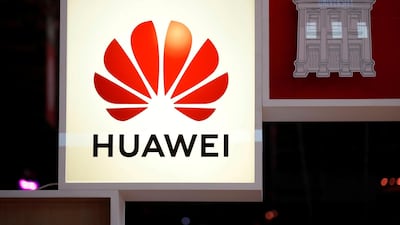Prime Minister Boris Johnson is preparing to begin phasing out the use of Huawei Technologies Co. equipment in 5G telecoms networks as soon as this year.
A report from the National Cybersecurity Centre concluded that new US sanctions mean the Chinese company will have to use untrusted technology making security risks impossible to control, it emerged on Monday.
Officials are drawing up plans to speed up the removal of existing Huawei installations and a cross-government discussion at the National Security Council is due to consider the timetable soon.
“If the US imposes sanctions, which they have done, we believe that could have a significant impact on the reliability of Huawei equipment and when we can use it safely,” UK Digital and Culture Secretary Oliver Dowden said. “If it’s appropriate to change policy, we’ll clearly make a statement to the House of Commons when we’ve been through that and made a decision.”
Mr Dowden said he would make a statement on Huawei to Parliament before it rises for summer recess on July 22.
If taken, the decision would mark a about-turn by Mr Johnson’s administration, which in January cleared Huawei to participate in the UK’s 5G buildout subject to strict conditions, including a 35 per cent cap on its involvement and a ban on its involvement in parts of the network deemed sensitive. Ministers at the time argued the UK needed diversity in its suppliers, and that any risks involved in using Chinese equipment could be mitigated.
But the decision was opposed by Donald Trump’s administration. Washington has lobbied Mr Johnson to impose an outright ban on the Shenzhen tech company, citing concerns that its gear could be vulnerable to infiltration by Chinese spies. There was growing hostility from opponents in the UK Conservative Party, who believed they had the numbers to block any legislation on the matter.
Liu Xiaoming, China’s ambassador to London, said if the British government does ban Huawei it would show that it could no longer follow an independent foreign policy.
“If you dance to the tune of other countries, how can you call yourself Great Britain?” Mr Liu demanded on Monday. He added that such a move would “punish Britain’s image” as a supporter of free trade and damage trust between China and the UK.
“If you do not want Huawei, it is up to you,” he said.
Defence Secretary Ben Wallace told Parliament’s Defence Committee on June 30 that American sanctions on Huawei – which put its microchip supply in jeopardy -- are “designed to make 5G designed by Huawei very hard to do”.
Sitting alongside him, Mr Dowden said the sanctions were “likely to have an impact on the viability of Huawei as a provider for the 5G network”.
Other Suppliers
Mr Dowden also said Huawei won’t be part of the country's 5G telecoms networks in the long term, and added he welcomes approaches from alternative vendors including South Korea’s Samsung Electronics and Japan’s NEC.
He may provide Mr Johnson with formal advice as soon as this week on Huawei, according to the person familiar. “We are considering the impact the US’s additional sanctions against Huawei could have on UK networks,” a statement said. “This is an ongoing process and we will update further in due course.”
For its part, Huawei said in a statement on Sunday it’s “open to discussions” with the UK government.
“We are working closely with our customers to find ways of managing the proposed US restrictions so the UK can maintain its current lead in 5G,” Huawei vice president Victor Zhang said. “We believe it is too early to determine the impact of the proposed restrictions, which are not about security but about market position.

